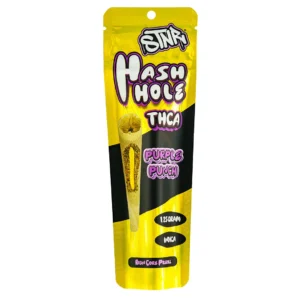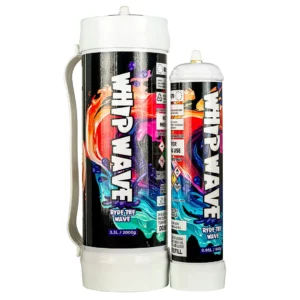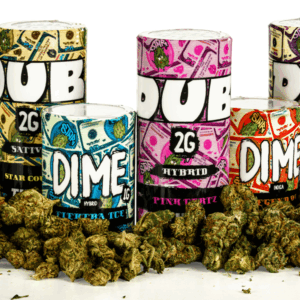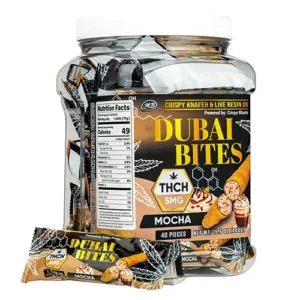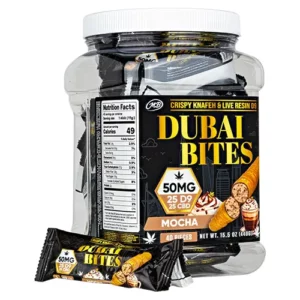Have you ever wondered about the potency and duration of THC syrup’s effects? This innovative cannabis product has been gaining popularity among enthusiasts and medical users alike. But how exactly does it work, and what makes it stand out from other consumption methods? In this comprehensive guide, we’ll dive deep into the world of THC syrup, exploring its unique properties, benefits, and how to make your own at home. Whether you’re a seasoned consumer or just curious about this intriguing liquid, buckle up for an informative ride that will leave you with a thorough understanding of this fascinating cannabis concoction.
What is THC Syrup?
THC syrup is a liquid cannabis concentrate that combines a potent THC extract with a sweet, syrupy base. This viscous concoction is designed to be consumed orally, offering a discreet and easy way to enjoy the effects of cannabis. The syrup base is typically made with a combination of sugar, water, and flavorings, which help to mask the distinct taste of cannabis while providing a palatable and enjoyable experience.
One of the key advantages of THC syrup is its versatility. It can be consumed on its own, mixed into beverages, or even used as a topping for desserts. This flexibility makes it an attractive option for those who may not enjoy smoking or vaping, or for those who seek a more precise and controlled dosing method.
The potency of THC syrup can vary depending on the concentration of the THC extract used in its production. Manufacturers often offer different strength options to cater to individual preferences and tolerance levels. It’s crucial to start with a low dose and gradually work your way up to avoid overwhelming experiences, especially for those new to cannabis or with lower tolerances.
Understanding the Effects of THC Syrup
When it comes to consuming cannabis, THC syrup offers a unique and potent experience. This liquid form of THC is known for its fast-acting effects and longer duration compared to other methods. But just how long do the effects of THC syrup last? Let’s dive into the details.
How Long Do the Effects Last?
The onset of THC syrup’s effects typically occurs within 15-45 minutes after consumption, depending on individual factors such as metabolism and tolerance. Once the effects kick in, they can last anywhere from 4 to 8 hours, with peak intensity usually experienced around the 2-hour mark.
This extended duration is one of the main advantages of THC syrup over other consumption methods. While the effects of smoking or vaping cannabis tend to wear off within 2-3 hours, THC syrup provides a longer-lasting experience that’s perfect for those seeking prolonged relief or relaxation.
It’s important to note that the effects of THC syrup can be quite potent, especially for those with lower tolerance levels. As with any cannabis product, it’s always best to start with a low dose and gradually increase as needed to avoid overwhelming or uncomfortable experiences.
Factors Influencing Duration and Intensity
Several factors can influence the duration and intensity of THC syrup’s effects. These include:
- Dosage: Higher doses of THC syrup will generally result in stronger and longer-lasting effects.
- Metabolism: Those with faster metabolisms may experience the effects more quickly but for a shorter duration, while those with slower metabolisms may have a delayed onset but longer-lasting effects.
- Tolerance: Regular cannabis users with higher tolerance levels may require larger doses to achieve desired effects and may experience a shorter duration compared to those with lower tolerance.
- Food intake: Consuming THC syrup on an empty stomach can lead to faster absorption and more intense effects, while taking it with food may delay onset but prolong the duration.
- Individual physiology: Factors such as body weight, age, and overall health can also play a role in how long and intensely one experiences the effects of THC syrup.
Understanding these variables can help you better predict and manage your THC syrup experience. As always, it’s crucial to consume responsibly and listen to your body’s signals to ensure a safe and enjoyable experience.
Beneficial Uses of THC Syrup
THC syrup, a versatile cannabis-infused liquid, has gained popularity for its potential therapeutic benefits and recreational uses. This section delves into the various applications of THC syrup, highlighting its potential for pain management, sleep aid, enhanced relaxation, and overall well-being.
Pain Management
One of the most prominent uses of THC syrup is its potential for managing chronic pain. The active ingredient, THC, interacts with the body’s endocannabinoid system, which plays a crucial role in regulating pain perception. By binding to cannabinoid receptors, THC may help alleviate various types of pain, including:
- Neuropathic pain
- Inflammatory pain
- Muscle and joint pain
THC syrup’s liquid form allows for easy dosing and rapid absorption, making it a convenient option for those seeking pain relief. However, it’s essential to consult with a healthcare professional before using THC syrup for medicinal purposes.
Sleep Aid
Another potential benefit of THC syrup is its ability to promote better sleep. Many individuals struggle with insomnia or sleep disturbances, and THC has been shown to have sedative properties that may help induce and maintain restful sleep.
THC syrup can be consumed before bedtime to help:
- Reduce sleep latency (the time it takes to fall asleep)
- Increase total sleep duration
- Improve sleep quality
The liquid form of THC syrup allows for precise dosing, enabling users to find the optimal amount for their individual needs without the risk of overconsumption.
Enhanced Relaxation and Well-being
THC syrup can also be used to promote relaxation and overall well-being. The psychoactive effects of THC can induce a sense of euphoria, reduce stress and anxiety, and enhance mood. Many users report feeling more at ease and content after consuming THC syrup in appropriate doses.
This relaxation effect can be particularly beneficial for individuals dealing with:
- Chronic stress
- Anxiety disorders
- Depression
However, it’s crucial to note that individual responses to THC can vary, and some users may experience heightened anxiety or paranoia. Starting with a low dose and gradually increasing as needed is recommended.
Medicinal vs Recreational Use
THC syrup can be used for both medicinal and recreational purposes, depending on the user’s needs and the legal status of cannabis in their region. In areas where medical marijuana is legal, THC syrup may be prescribed by healthcare professionals to treat specific conditions, such as chronic pain, sleep disorders, or appetite loss due to chemotherapy.
Recreational use of THC syrup is more focused on the enjoyment of its psychoactive effects and the enhancement of social experiences. However, it’s essential to consume THC syrup responsibly and in accordance with local laws and regulations.
Comparative Analysis: THC Syrup vs. Other Consumption Methods
When it comes to consuming THC, there are various methods available, each with its own unique characteristics. Let’s take a closer look at how THC syrup compares to other popular consumption methods, such as edibles, smoking, and vaping.
Edibles vs Liquid THC: Onset Times and Bioavailability
THC syrup falls under the category of liquid edibles, which sets it apart from traditional solid edibles like gummies or brownies. One key difference between the two is the onset time of effects. According to a study published in the Journal of Analytical Toxicology, liquid edibles like THC syrup can take effect within 15-45 minutes, while solid edibles may take anywhere from 30 minutes to 2 hours to kick in (source).
This faster onset time can be attributed to the higher bioavailability of liquid THC. Bioavailability refers to the proportion of a substance that enters the bloodstream and produces active effects. Research has shown that liquid THC formulations have a bioavailability of around 90%, compared to 6-20% for solid edibles (source). This means that THC syrup delivers a more potent and efficient dose of THC to the body.
Smoking/Vaping vs Ingesting: Experience and Health Considerations
Smoking and vaping are inhalation methods that deliver THC directly to the lungs, resulting in rapid absorption into the bloodstream. The effects of smoking or vaping THC can be felt within minutes, peaking at around 30 minutes, and lasting for 2-3 hours (source).
In contrast, ingesting THC syrup involves absorption through the digestive system, which results in a slower onset but longer-lasting effects. The effects of THC syrup can last anywhere from 4-8 hours, depending on factors like dosage and individual metabolism (source).
When it comes to health considerations, ingesting THC syrup may be preferable to smoking or vaping. Smoking cannabis can expose the lungs to harmful toxins and carcinogens, increasing the risk of respiratory issues (source). Vaping, while generally considered safer than smoking, has also been associated with lung injuries and illnesses.
Ingesting THC syrup eliminates the risks associated with inhalation, making it a potentially healthier alternative for those looking to consume THC. However, it’s essential to start with a low dose and wait for the effects to kick in before consuming more, as the delayed onset can lead to accidental overconsumption.
DIY THC Syrup: A Step-by-Step Guide
Creating your own THC syrup at home can be a rewarding and cost-effective way to enjoy the benefits of cannabis. With the right ingredients, equipment, and a little patience, you can craft a potent and delicious THC-infused syrup tailored to your preferences. In this section, we’ll guide you through the process, from gathering the necessary supplies to the final product.
Necessary Ingredients and Equipment
Before you begin, ensure you have the following ingredients and equipment on hand:
- Cannabis flower (amount depends on desired potency)
- Vegetable glycerin or propylene glycol
- Water
- Sugar or honey (optional, for flavor)
- Flavoring (e.g., fruit juice or extracts)
- Cheesecloth or fine-mesh strainer
- Double boiler or slow cooker
- Glass jar for storage
It’s crucial to use high-quality, lab-tested cannabis to ensure a safe and effective final product. If you’re unsure about the potency of your flower, start with a small amount and adjust as needed.
The Complete Process from Decarboxylation to Storage
- Decarboxylation: Begin by decarboxylating your cannabis flower. Preheat your oven to 240°F (115°C), break up the buds into small pieces, and spread them evenly on a baking sheet lined with parchment paper. Bake for 30-40 minutes, stirring every 10 minutes to ensure even heating. This process activates the THC, making it more bioavailable.
- Infusion: In a double boiler or slow cooker, combine the decarboxylated cannabis, vegetable glycerin or propylene glycol, and water (ratio of 1:1:1). If using sugar or honey, add it now. Simmer the mixture on low heat for 4-6 hours, stirring occasionally. The low, slow cooking process allows the THC to infuse into the liquid.
- Straining: Once the infusion is complete, let the mixture cool slightly before straining it through a cheesecloth or fine-mesh strainer into a clean glass jar. Squeeze the cheesecloth to extract as much liquid as possible. Discard the plant material.
- Flavoring: If desired, add your chosen flavoring to the strained syrup. Fruit juices, extracts, or essential oils can be used to create a variety of tasty combinations. Start with a small amount and adjust to taste.
- Storage: Store your homemade THC syrup in an airtight glass jar in a cool, dark place. It should keep for several weeks to a few months, depending on the ingredients used. Always label your syrup with the date and approximate potency for easy reference.
Remember, the potency of your DIY THC syrup will depend on the quality and quantity of the cannabis used. It’s essential to start with a low dose and wait at least an hour to gauge the effects before consuming more. As with any cannabis product, it’s crucial to use your homemade THC syrup responsibly and in accordance with your local laws and regulations.
State Regulations on Cannabis Products
The legal landscape surrounding cannabis products, including THC syrup, varies significantly from state to state. While some states have fully legalized marijuana for both medicinal and recreational purposes, others maintain strict prohibitions or allow only medical use with specific restrictions.
In states where cannabis is legal, regulations often dictate the maximum allowable THC content in products, packaging and labeling requirements, and distribution methods. For example, some states may require child-resistant packaging and clear labeling of THC content to promote safe consumption and prevent accidental ingestion.
When it comes to homemade THC syrup, the legality becomes even more complex. While it may be tempting to create your own cannabis-infused concoctions, it’s essential to understand that doing so may violate state laws, even if cannabis itself is legal. Many states prohibit the manufacturing of cannabis products outside of licensed facilities to ensure consistency, safety, and quality control.
FAQs About THC Syrup
When it comes to THC syrup, there are a few common questions that often arise. Let’s dive into some of the most frequently asked questions to help you better understand this unique cannabis product.
How does it differ from traditional edibles?
THC syrup differs from traditional edibles in a few key ways. First, the liquid form allows for more precise dosing compared to solid edibles like brownies or gummies. This can be especially beneficial for those using THC syrup for medicinal purposes.
Additionally, the onset time for THC syrup is typically faster than traditional edibles. While edibles can take anywhere from 30 minutes to 2 hours to take effect, THC syrup often starts working within 15-45 minutes. This is because the liquid is more easily absorbed by the body.
Can you make it at home?
Yes, it is possible to make THC syrup at home! The process involves decarboxylating your cannabis, infusing it into a simple syrup base, and then straining out the plant material. While it does require some time and effort, making your own THC syrup allows you to control the potency and flavor to your liking.
However, it’s crucial to note that making THC syrup at home comes with risks. Proper dosing can be challenging, and there’s always the potential for contamination if not done in a sterile environment. If you do choose to make it at home, be sure to do thorough research and take all necessary precautions.
Is it safe to drive after consuming?
No, it is never safe to drive after consuming any product containing THC, including THC syrup. Just like with alcohol, driving under the influence of cannabis is illegal and incredibly dangerous.
THC can impair your judgment, reaction time, and coordination – all skills that are essential for safe driving. Even if you feel fine, your ability to operate a vehicle may still be compromised.
If you plan on consuming THC syrup, make sure you have a safe ride home or a place to stay until the effects have fully worn off. It’s always better to err on the side of caution when it comes to mixing cannabis and driving.

